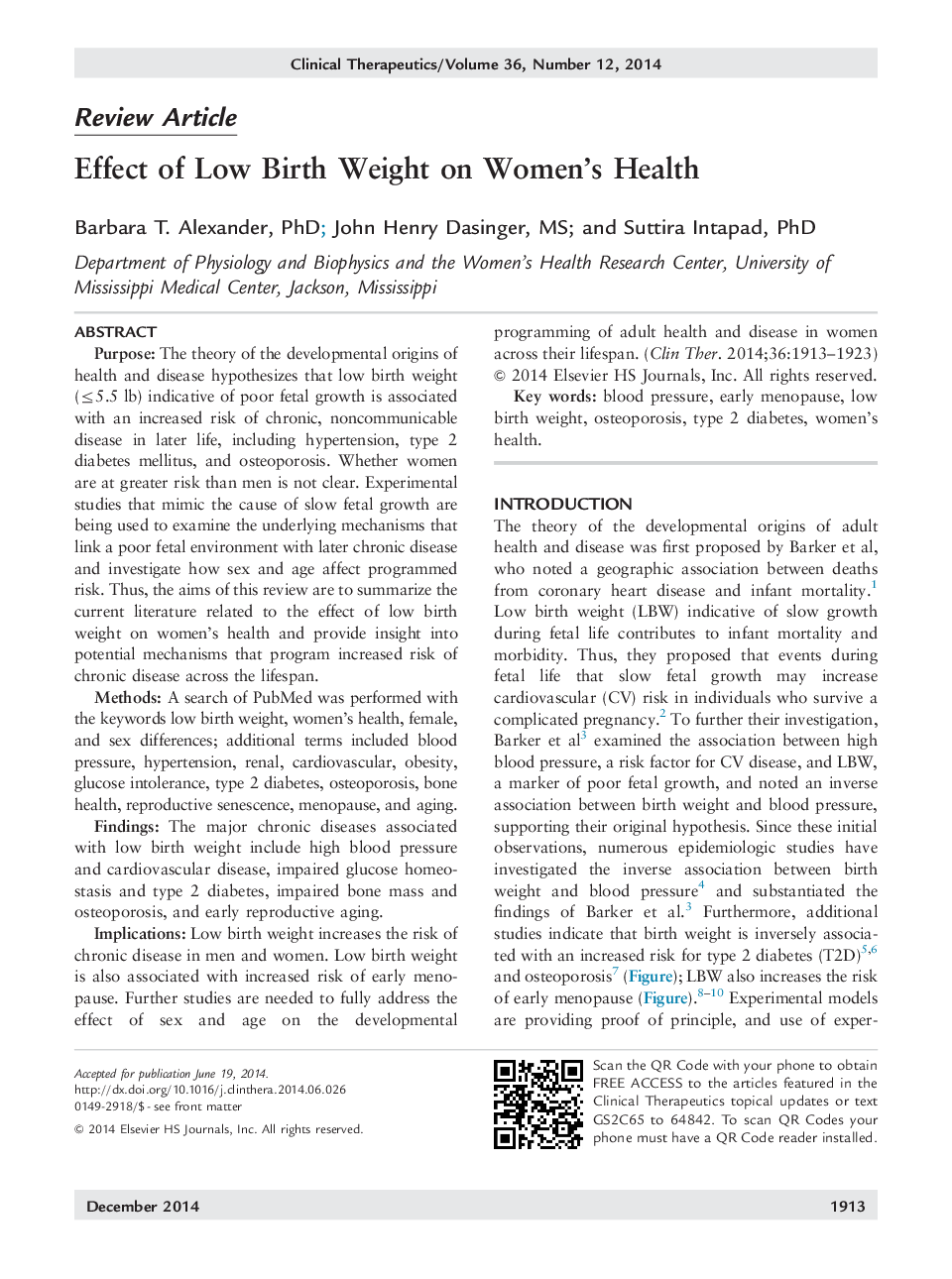| Article ID | Journal | Published Year | Pages | File Type |
|---|---|---|---|---|
| 5825054 | Clinical Therapeutics | 2014 | 11 Pages |
PurposeThe theory of the developmental origins of health and disease hypothesizes that low birth weight (â¤5.5 lb) indicative of poor fetal growth is associated with an increased risk of chronic, noncommunicable disease in later life, including hypertension, type 2 diabetes mellitus, and osteoporosis. Whether women are at greater risk than men is not clear. Experimental studies that mimic the cause of slow fetal growth are being used to examine the underlying mechanisms that link a poor fetal environment with later chronic disease and investigate how sex and age affect programmed risk. Thus, the aims of this review are to summarize the current literature related to the effect of low birth weight on women's health and provide insight into potential mechanisms that program increased risk of chronic disease across the lifespan.MethodsA search of PubMed was performed with the keywords low birth weight, women's health, female, and sex differences; additional terms included blood pressure, hypertension, renal, cardiovascular, obesity, glucose intolerance, type 2 diabetes, osteoporosis, bone health, reproductive senescence, menopause, and aging.FindingsThe major chronic diseases associated with low birth weight include high blood pressure and cardiovascular disease, impaired glucose homeostasis and type 2 diabetes, impaired bone mass and osteoporosis, and early reproductive aging.ImplicationsLow birth weight increases the risk of chronic disease in men and women. Low birth weight is also associated with increased risk of early menopause. Further studies are needed to fully address the effect of sex and age on the developmental programming of adult health and disease in women across their lifespan.
